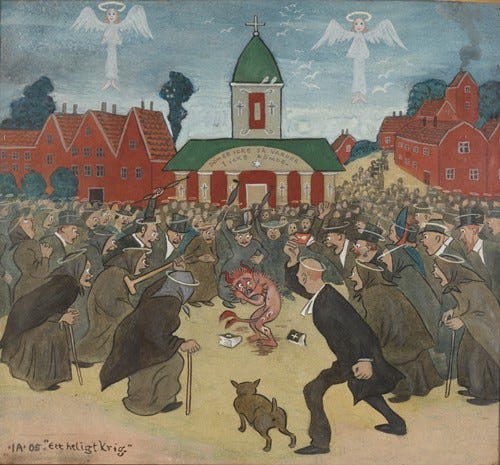Can Biden End the Culture War?
Biden's State of the Union address was boring. For a country defined by identity politics, there was almost nothing about identity. That’s a good thing.
Welcome to new subscribers who read my piece on Andrew Tate’s conversion to Islam in The Free Press. As you’ll find here, the question of how we think about culture and identity and what it means for American democracy is at the forefront of my thinking and writing, for better or worse. Which is why I found myself somewhat surprised by Biden’s speech.




